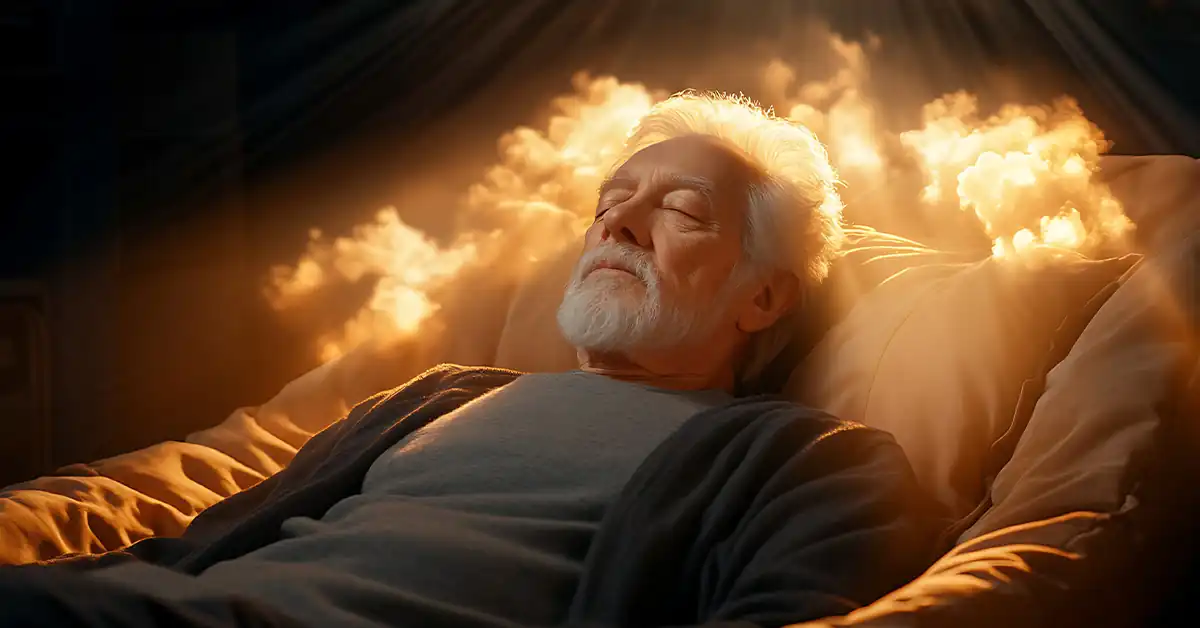
Is Death Really Just Sleep?
When people die, where do they go? Are they instantly judged and sent to Heaven or Hell? Are they annihilated into nonexistence? Or… do they simply fall asleep?
The Bible is shockingly consistent on this question , and it doesn’t side with Eternal Conscious Torment, nor with soul-extinguishing Annihilationism. From start to finish, Scripture speaks with one voice: death is sleep.
This isn’t metaphor for metaphor’s sake. It’s a theological truth that undercuts the foundations of Hell-based fear preaching and shallow “poof-gone” annihilation theories alike. Let’s break this open.
Death Is Described as Sleep , Repeatedly
The imagery is impossible to miss. In the Old Testament, we see phrases like “David slept with his fathers,” or “Job lies down and will not rise till the heavens be no more.” In the Psalms, death is called “the sleep of death.” In Daniel 12:2, those who “sleep in the dust of the earth shall awake.” That’s not poetic ambiguity. That’s direct, clear, and doctrinally loaded language.
The New Testament continues this same pattern. Jesus says Lazarus is asleep (John 11:11), and the apostles “fell asleep” in Christ (1 Corinthians 15:6, Acts 7:60). Paul repeatedly refers to the dead as those who are asleep , not gone, not tormented, not annihilated, but asleep, awaiting resurrection.
This is not a throwaway metaphor. It is the dominant framework Scripture uses to explain death.
The Whole Person Sleeps , Not Just the Body
Contrary to modern traditions that teach the body sleeps while the soul goes elsewhere, the Bible makes no such distinction in its language. The “sleep” of death refers to the entire person.
When Jesus raised Lazarus, He said plainly: “Lazarus is dead.” But just moments before, He told the disciples, “Our friend Lazarus has fallen asleep, but I go to awaken him.” (John 11:11-14). The disciples were confused, because to them, sleep meant rest , not death. Jesus affirms the equivalence: sleep = death.
Likewise, Daniel 12:2 describes those who “sleep in the dust of the earth.” Not in Heaven. Not in some disembodied soul-realm. But in the ground. Fully dead. Fully asleep. Awaiting something.
What Are They Waiting For? The Resurrection.
Biblically, the “sleep” of death has a very specific end: the resurrection.
No scripture teaches that people “wake up” in Heaven or Hell immediately after death. Instead, Scripture teaches that they are raised up , awakened , at a later time. The dead in Christ “shall rise” at His coming (1 Thessalonians 4:16). The wicked, too, will be raised for judgment (John 5:29). Until then? Silence. Stillness. Sleep.
Job 14:12 couldn’t be clearer: “So man lies down and rises not again; till the heavens be no more, they will not awake or be roused out of their sleep.” That’s not annihilation. And it’s not torment. It’s unconscious rest.
What Is Sheol? A Sleep State. Not a Torture Chamber.
The Hebrew concept of Sheol has been mangled by centuries of bad translation and worse theology. Instead of letting Scripture define it, theologians imported Greek myths of Hades, medieval fears of Hell, and Catholic dogmas of purgatory. But in Scripture, Sheol simply means the grave , the realm of the dead , the sleep chamber of every soul awaiting resurrection.
It is not a realm of torment or fire. It is not a holding pen for conscious souls. It is the place where souls rest in silence, without awareness, without motion, without pain , just sleep.
Psalm 6:5 says, “In death there is no remembrance of you; in Sheol who will give you praise?” That statement is devastating to the ECT narrative. If Sheol is filled with conscious souls , shouldn’t they be remembering or crying out? But the text says no. There is no praise. No remembrance. Just unconscious stillness.
This Isn’t Soul Annihilation Either
Let’s be clear: just because the dead are unconscious doesn’t mean they are destroyed. Annihilationism claims the soul ceases to exist. But Scripture shows the dead as very much existing , they’re just not conscious. They are “asleep” , not gone.
You can’t “wake up” someone who doesn’t exist.
So Sheol isn’t a fiery pit , and it’s not a void of nonexistence. It’s a sleep-state. A waiting room for the resurrection. And every soul , righteous or unrighteous , goes there.
Every Single Person Sleeps in Death
This is the final nail in the coffin of false afterlife theology. Everyone , even the saints , sleep.
David? Slept. Stephen? Slept. Paul says, “We shall not all sleep, but we shall all be changed” (1 Corinthians 15:51). Again, the default expectation for the believer is sleep , unless Christ returns first.
If the righteous go to Heaven at death, why would Paul say they sleep? If the wicked are thrown into fire immediately, why would Jesus say they await resurrection?
The Bible speaks. And the doctrine is simple: Sheol is sleep. Death is sleep. Resurrection is the awakening.
Conclusion: Let the Scriptures Speak
The entire narrative of death in the Bible points to one singular truth: death is not final, but it is silent. It is not conscious. It is not judgment day. It is not eternal bliss. It is sleep.
This sleep-state destroys the terror-fueled myth of Eternal Conscious Torment, which depends on people being alive forever in agony. It also refutes Annihilationism, which treats death as obliteration. Neither withstands the weight of Scripture.
God, in His mercy, has shown us a better story. One of rest, waiting, and eventual resurrection.
So next time someone tries to scare you with flames or erase you with a puff of smoke, remind them what the Bible actually says: “The dead sleep.” And soon, they will awaken.
- 08/27/2025
- WRITE A COMMENT
Recent Posts
- The Eternal False Translation: How Aionios Was Corrupted Into Eternal
- The Rich Man and Lazarus
- Does Grace Last Forever?
- His Love Never Fails
- Love and Forgive Your Enemies
- His Mercy Endures Forever
- Scriptures That Teach Universal Reconciliation
- The Lesson of James, Peter and John
- Progressive Salvation is Biblical!
- The Gates Never Shut!


